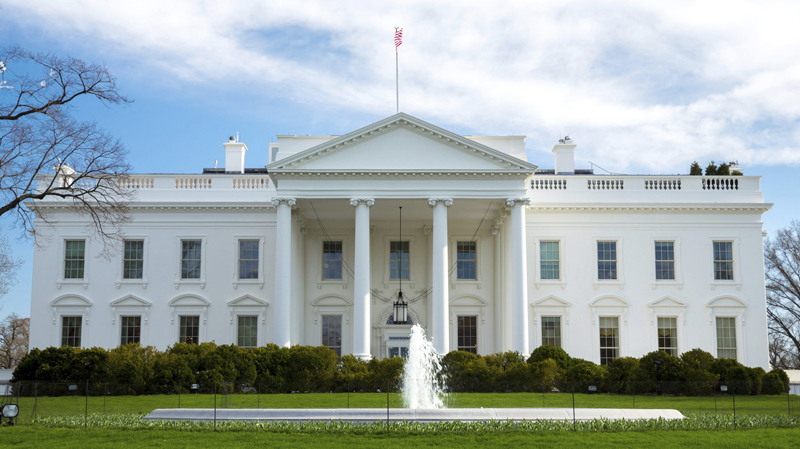This week, President Trump released a proposed budget that, if enacted, would sharply reduce global and domestic spending for HIV care and prevention. It would also reduce access to Medicaid, and move categories of healthcare spending, such as federal investment in community healthcare centers, from mandatory to discretionary spending.
The budget would eliminate AIDS Education and Training Centers (AETCs) and Special Projects of National Significance (SPNS), which are run under the auspices of the Ryan White HIV/AIDS Program. The education centers and special projects program assists with rapid response to outbreaks of disease. When nearly 200 people were diagnosed with HIV in rural Scott County, Indiana over a 15-month period in 2014-15, the Midwest AIDS Education and Training Centers provided in-depth training to doctors and care providers in the area and helped get those newly diagnosed with HIV into immediate care.
The education centers and special projects program are also central to pioneering and evaluating innovative HIV care models that improve access to and retention in care for vulnerable populations disproportionately burdened by HIV, such as gay men and transgender women, particularly gay men and transgender women of color.
“The proposed cuts in domestic HIV prevention and treatment would undermine the dramatic progress seen since the implementation of the National HIV/AIDS Strategy,” said Sean Cahill, Director of Health Policy Research. “We urge Congress to reject these proposed cuts and maintain the bipartisan support that HIV prevention and treatment have traditionally received.”
In addition to the eliminate of the education centers and special projects program, the Trump budget proposes steep cuts in funding ($35 million) for domestic HIV/AIDS research and prevention efforts run by the U.S. Centers for Disease Control and Prevention (CDC). Although rates of new HIV infections have dropped by 20 percent overall in the past decade, they have increased sharply among Black gay and bisexual men, Black transgender women, and the general population of gay and bisexual men and transgender women.
The budget also seeks to reduce funding by $26 million for the Housing Opportunities for Persons with AIDS (HOPWA) program run through the Department of Housing and Urban Development. HOPWA gives grants to states, nonprofit organizations, and local communities to fund projects that help low-income people living with HIV (PLWH) find and maintain affordable housing, which has been shown repeatedly to be vital to adhering to HIV treatment regimens.
The budget recommends cutting U.S. global HIV/AIDS programs by $1 billion. Such reductions in funding, if enacted, would affect USAID, CDC global HIV programs, the Global Fund to Fight AIDS, Tuberculosis, and Malaria, and PEPFAR (President’s Emergency Plan for AIDS Relief), which could result in an estimated one million people dying prematurely of AIDS.
“It’s impossible to overstate the deadly impact these proposals could potential have,” Cahill added. “We have been lulled into believing that HIV and AIDS is no longer a concern globally thanks to the scale up of treatment. But these advances mean nothing if you’re cut off from life-saving medicine.”
The proposed budget would also eliminate the expansion of state Medicaid programs that occurred under the Affordable Care Act. Expanding state Medicaid programs contributed to dramatically reducing the rates of healthcare uninsurance among lesbian, gay, bisexual, and transgender (LGBT) people. The CDC and the Kaiser Family Foundation estimate that following implementation of key elements of health care reform the percentage of PLWH who lacked any kind of health insurance coverage dropped from 22% in 2012 to 15% in 2014. The percentage of PLWH who received their health insurance through Medicaid increased from 36% in 2012 to 42% in 2014. Medicaid expansion played a major role in expanding access to insurance for PLWH.
The proposed budget would also permit work requirements in Medicaid eligibility criteria and allow states to enact block grant or per-capita cap systems for Medicaid, which could result in cuts to optional Medicaid coverage programs due to reduced federal funding for Medicaid.
Last, the proposed budget also shifts a significant amount of funding for various programs from mandatory funding to discretionary funding, which would make the programs vulnerable to even more budget cuts in the future. For example, $3.6 billion in funding for community health centers would be shifted from mandatory funding to discretionary funding under the proposed budget. Community health centers serve some of the country’s most vulnerable populations, including LGBT people; black and Hispanic people; people with low incomes, and PLWH.
“This budget proposes a radical rejection of the social compact that has sustained our country for half a century,” Cahill added. “It would also undermine important progress we have made in preventing and treating HIV here and in Africa. It casts our most vulnerable people aside and leaves them to fend for themselves without the resources they need to succeed.”
Want to receive email updates about what’s happening at Fenway Health and AIDS Action? Sign up here.


